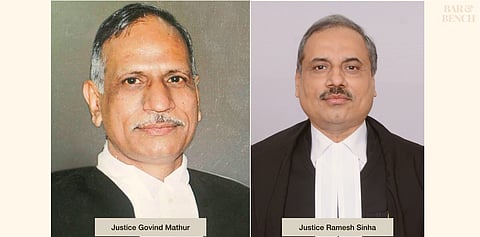
- News
- Columns
- Interviews
- Law Firms
- Apprentice Lawyer
- Legal Jobs
- हिंदी
- ಕನ್ನಡ

The Allahabad High Court on Monday ordered the Uttar Pradesh Government to take down posters that had displayed images of persons accused of having destroyed public property during Anti-CAA protests, terming the same as a violation of Article 21.